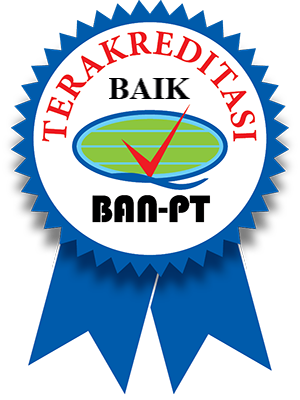You are here
Excellence
In the past, statistics was known by surveys and hypothesis testing that were carried out manually. Statistics course usually contain statistical calculations, either manually or with the help of a calculator, as well as reading statistical tables. Along with the use of SPSS etc., Statistics learning involves using procedures and interpreting software results.
Today, the development of statistical science cannot be separated from the development of big data and computer technology in the form of computational statistics and machine learning. This collaboration of technology and statistics is popularly referred as data science. Beside the domination of computer technology, statistics has an important role in data science because without this knowledge the data cannot be interpreted correctly.
Realizing these situation, the Bachelor of Statistics Study Program, Faculty of Mathematics and Natural Sciences Universitas Negeri Yogyakarta make various breakthroughs in educating prospective Statistics and Data science experts in the future, namely by:
- Use the simulation approach in teaching basic statistical methods. This approach is used by numerous undergraduate programs in statistics outside Indonesia.
- Introduce the foundations of data analysis and visualization in the second semester. This course contains the data manipulation and visualization procedures, as well as introduction to several techniques such as analysis of variance (Anova) and simple regression. These topics become foundation for data science.
- Introduce the R and python software and implement them in the second semester. Intensive training with these open source software helps the students for their future works as well as continuation of study.
- Statistical Computing become a compulsory subject in the fourth semester, followed by Statistical Simulation (also a compulsory subject) so that the graduates have excellent ability in performing computational techniques to solve statistical problems.
- Statistical Machine Learning and Statistical Data Mining are compulsory for students, followed by Artificial Neural Networks. These courses are arranged so that all graduates have sufficient knowledge and skills on the recent algorithms to analyze data. These courses are given along with the Multivariate Statistics, and supported by the Time Series Analysis course and Categorical Data Analysis course.
- Provides Educational Statistics courses which are the hallmark of Universitas Negeri Yogyakarta (UNY) as a former Teacher Training and Education Institute (IKIP). This course is taught by lecturers with a reputable research track record in the field of education.
- Provides four relevant fields, namely (1) Education and Social Science, (2) Biostatistics, (3) Actuarial Science, and (4) Economics dan Business. Each field consists of several elective courses that arranged based on the industrial needs and technological development.
- Provides several textbooks and reference books in the Faculty of Mathematics and Natural Science's library, as well as scientific journal that subscribed by the UNY's digital library.
Learning with computer practice at the Statistics Study Program, FMIPA UNY is supported by three computer laboratories with a capacity of 40 people each. Each student has the opportunity to practice using the computer directly under the guidance of the lecturer.
Sistem Informasi
Kontak Kami
Program Studi Statistika
(Gedung Baru FMIPA lt III depan Masjid Mujahidin Karangmalang)
FMIPA Universitas Negeri Yogyakarta
Kampus Karangmalang Yogyakarta 55281
Copyright © 2024,

